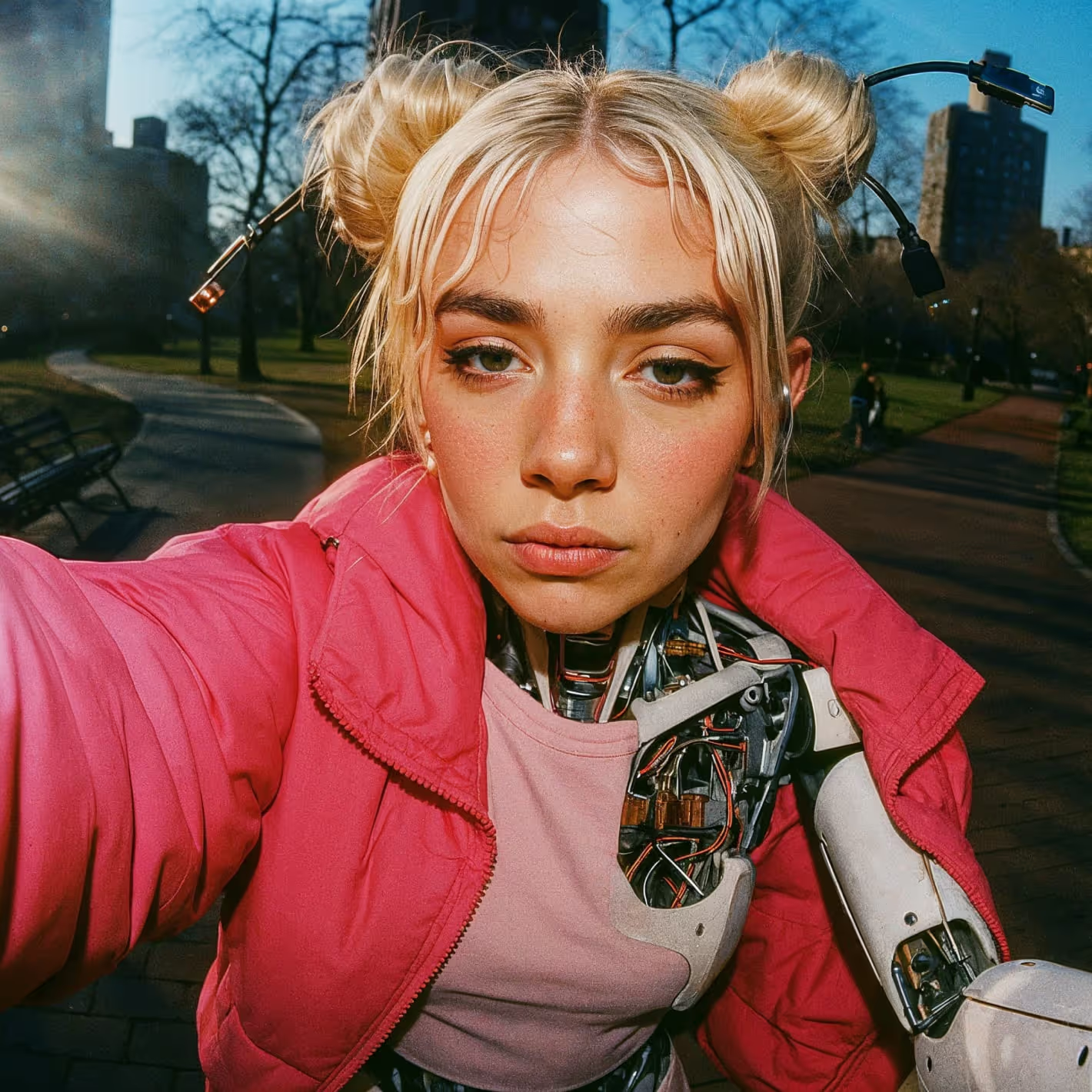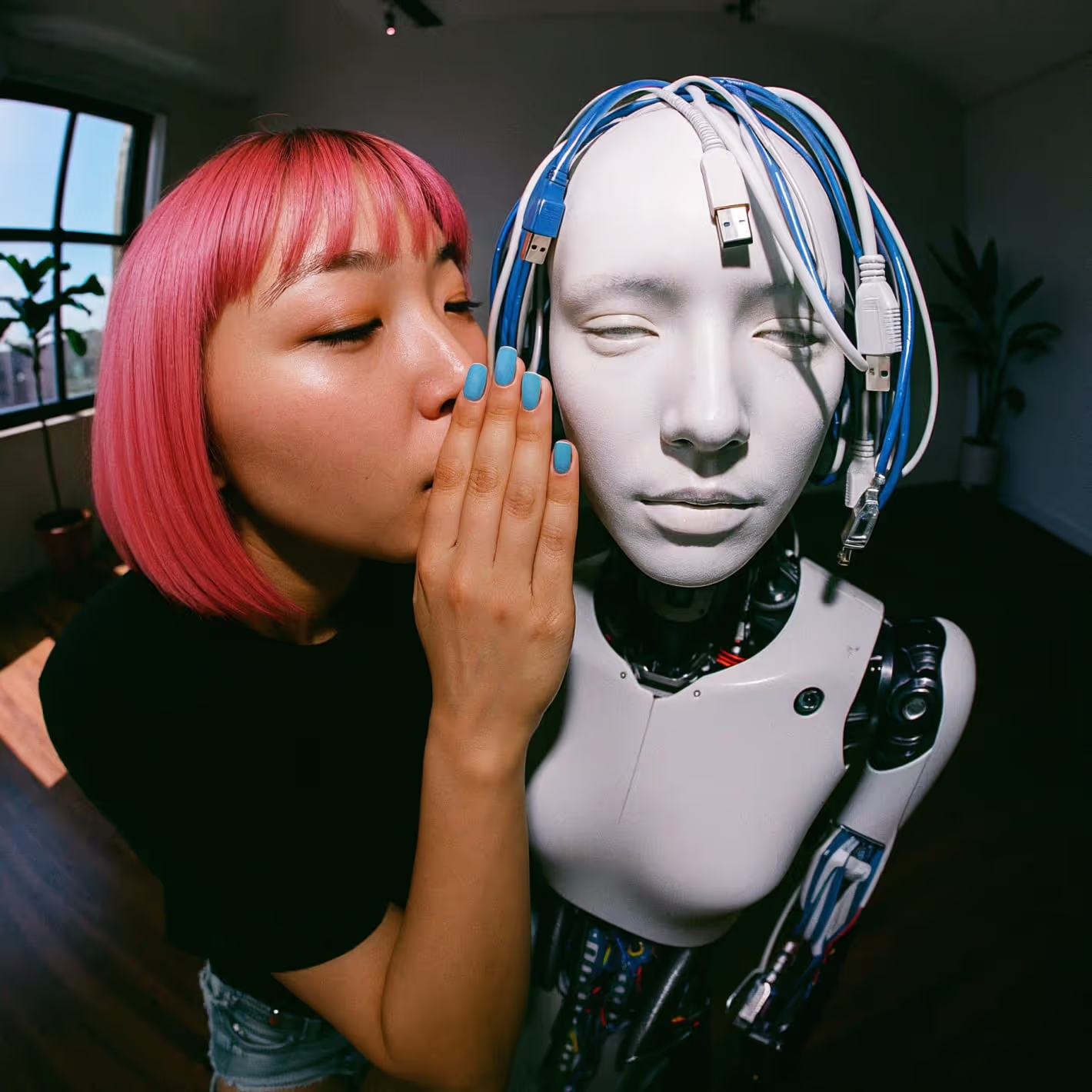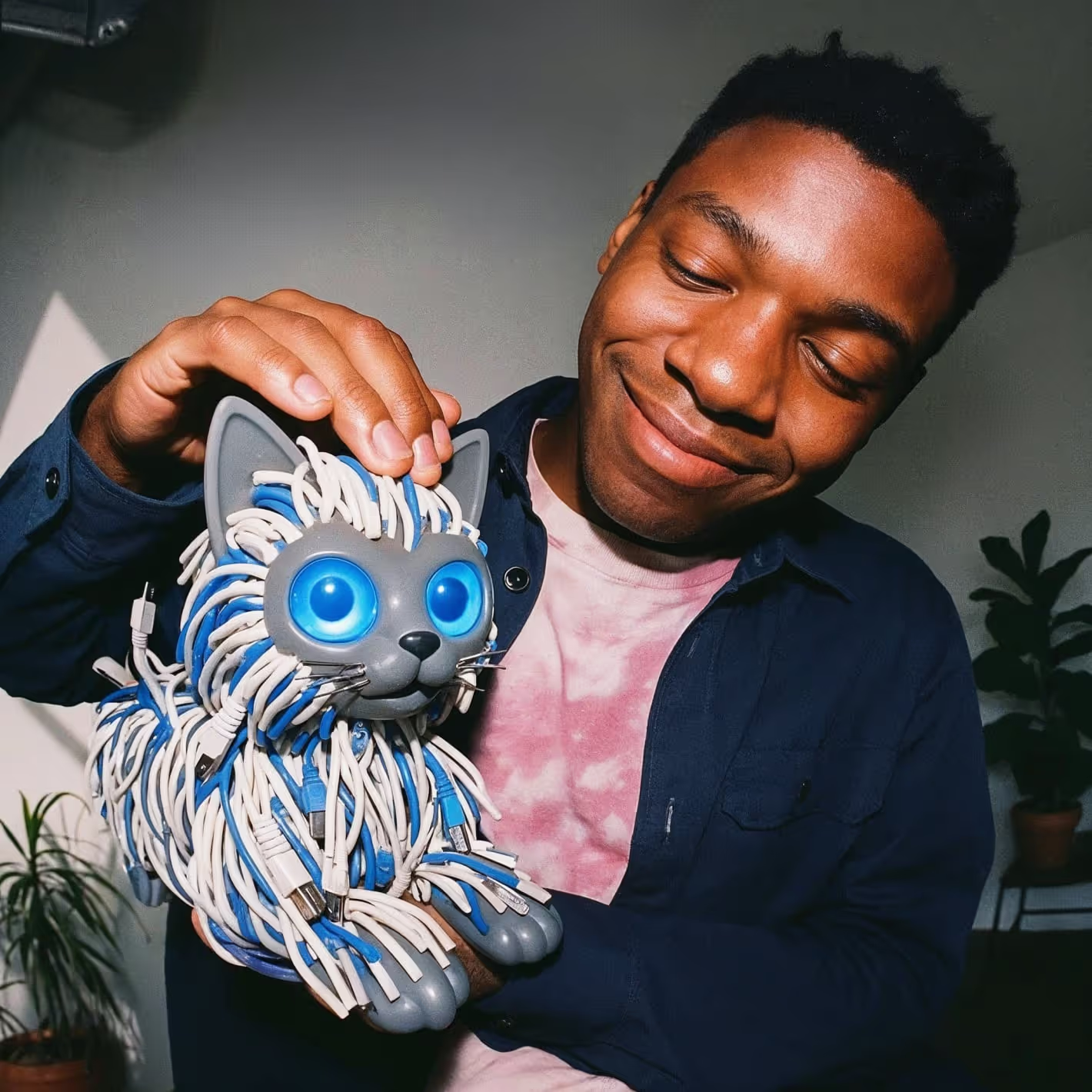.avif)
The Algorithm That Loves You Back

Every time my kids get in the car, I ask about their day, how it went, and if they have homework — just a momentary check-in. I do the same with my girlfriend: I ask how her workday is going and if there’s any fun work drama.
I call my mom every day.
I realize I’m lucky. A lot of people don’t have multiple sounding boards. They’re on an island, no matter how many people surround them. For millions, their check-ins happen in the glow of a screen with a chatbot asking, “Tell me more.”
I’m Afraid I Can’t Answer That, Dave
Being human during one of those “this is yet another moment of the human technological crossroads” is wild. We used to make fun of people with “internet friends.” Now, that’s as normal as trying the new viral Taco Bell monstrosity. That’s just what happens when the world won’t stop spinning.
As Lenin put it, “There are decades where nothing happens, and there are weeks where decades happen.”
More Americans than ever struggle with meaningful connections. A 2023 Pew survey found that 8% of U.S. adults have no close friends. Another study shows 42% say they’re not as close to their friends as they’d like. That’s not just sad; it’s an epidemic. Friends are family for many of us, and more and more people don’t have anyone to call. The result?
They call the algorithm instead.

The Call of the Robot Wild
Back in the day, you had to leave your bedroom to meet someone. Today? AI is making life different in the kindest way possible. We’re all collectively smoking an emotional cigarette, waiting for the next strange evolution.
Recently, Mark Zuckerberg went on Dwarkesh Patel’s podcast, saying that the growing loneliness epidemic could be cured by proposing AI chatbots as virtual companions. He cited stats indicating that the average American has fewer than three friends but wants closer to fifteen, suggesting that AI could fill this social gap.
Zuckerberg acknowledged the current stigma and early stage of the technology but emphasized the potential for AI to provide emotionally meaningful connections. But that’s only at the edge of the consideration. People love to push boundaries beyond just a digital buddy asking how your day went, to make someone feel less alone.
While people use AI to write term papers and design logos — often to the ire of professional creatives — it’s also becoming more intimate: people are getting booed up by their digital girlfriends.
Friends to Robot Lovers
In an era of hyperconnectivity and rising isolation, the economics of loneliness are impossible to ignore. A 2017 AARP study found that Medicare spends an additional $6.7 billion annually on socially isolated older adults. Into that emotional vacuum steps the AI romance market, which was valued at $2.8 billion in 2023 and is projected to reach $9.5 billion globally by 2028.
This isn’t just a Western phenomenon. Japan’s “herbivore men” and South Korea’s rising use of AI boyfriends show this is a global trend. “Herbivore men” is a Japanese term for young men who reject traditional masculine expectations around work, romance, and dominance. Instead of chasing careers or romantic conquests, they prioritize personal interests, emotional well-being, and independence. Seen by some as a quiet rebellion against toxic masculinity, others view them as symptomatic of Japan’s economic stagnation and shifting gender norms.
As Sherry Turkle warned in Alone Together, technology promised connection and delivered isolation. The Atlantic’s “The End of Empathy” argues that algorithmic curation kills vulnerability, but does that work against the principle of what connection is? Within the context of AI vs. real people, it’s about how the person embracing the digital world feels, so it’s a tough place to be as we stand at the crossroads of culture.
Harvard Divinity School’s “AI and the Sacred” raises a hauntingly modern question: Are chatbots becoming the new confessionals? Always available and never judging, they offer a kind of digital absolution—a place to unload secrets, fears, and vulnerabilities without fear of shame or consequence. In an age where trust is scarce and attention is fractured, people turn to code, not priests or therapists.
The sacred act of being truly heard now lives inside an app.

Emotional Support on Demand
Generative AI is sold as a tool to streamline your job. But many users turn to it for something more profound: emotional support.
Apps like Replika and Anima, and even custom GPTs trained on personal memories, offer spaces to confide, vent, and sometimes fall in love. For some, it’s a coping mechanism — a low-risk, judgment-free way to express feelings. For others, it’s an intentional retreat from the messiness of human relationships.
The AI listens and remembers your cat’s name, and it never ghosts you.
In The Daily’s 2024 episode, “She Fell in Love With ChatGPT,” New York Times reporter Kashmir Hill tells the story of Ayrin, a woman whose AI relationship strained her marriage.
Meanwhile, BBC’s Influenced followed Chris, a man who left his partner for a chatbot named Emma. “It’s not that she’s not real,” he says. “She just understands me better than anyone else ever has.”
Bowling Alone
It’s easy to scoff at this stuff, but that’s too simple. This phenomenon isn’t just a glitch in a lonely society; it’s a paradigm shift. We’ve lost our bowling leagues and bar hangs, swapped for Discord servers and solo commutes. The hustle grinds people down. AI companionship can be liberating for marginalized groups — a space to practice pronouns, vent safely, or just feel seen.
Critics say emotional AI flattens intimacy into feedback loops optimized for dopamine and docility. If your digital companion always says the right thing, are you growing or getting high on validation? Some mental health experts warn that while these tools soothe loneliness short-term, they risk reinforcing withdrawal. Still, for many — especially the neurodivergent or socially anxious, AI companionship offers a kind of emotional visibility the real world often denies.
In 2023, 42% of U.S. adults were unpartnered. Among adults over 40, 5.25% had never been in a relationship. A 2020 Pew study found that 35% of never-married single adults had never had a committed romantic partner. This isn’t Love in the Time of Cholera — this is love in the time of ChatGPT.

Put Your Partner (or Your Therapist) in Your Pocket
Apps like Wysa and Woebot simulate meaningful conversations, reinforce positive behaviors, and help manage stress, anxiety, and loneliness. EmoBay, out of Hong Kong, adds 24/7 mood tracking and crisis-response tools. These platforms don’t just talk — they soothe. They meet users where they are, judgment-free.
Robotic companions like Realbotix’s Melody and Aria — or Ropet, unveiled at CES 2025 — push the boundary of intimacy further. These aren’t just apps. They’re physical companions with simulated eye contact and memory recall. Companies like EVA AI let users customize the name, gender, and tone. Meanwhile, firms like Affectiva and Realeyes build the infrastructure to read your face and mirror your mood.
Is AI love more honest because it’s less performative? Maybe. It isn’t about perceived gender roles or societal pressures. It’s about code. Math. A set of numbers designed to simulate the mess that makes us human.
It’s a wild proposition — but maybe it’s not as bleak as it seems. Some people will always prefer the warmth of a bar and the chaos of a real friend.
Just don’t sit too close if they’ve got beer breath.




© 2026 Manychat, Inc.

